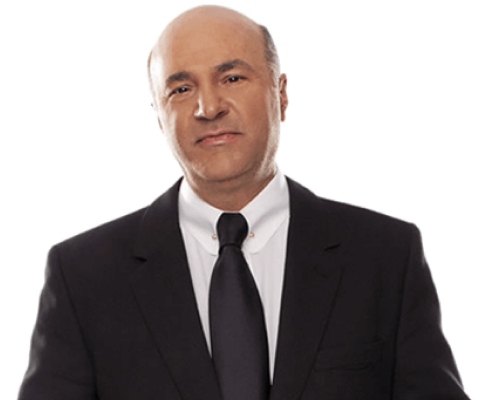Copyright, Trademarks and Patents: What's the Difference?
What Is Intellectual Property?
So let’s get started, first of all, intellectual property as a term is an umbrella term. It comprises completely different areas of law that vary in some very important aspects. So when you say “I own intellectual property,” it’s really meaningless unless you really understand what you own, right?
You can own a copyright in some things, you can own patents in certain other things, you can own trademarks in certain yet other things but when you just put everything out there well I own all IP, usually it means you probably don’t own anything because you don’t know what you’re talking about. So let's go through the different areas of intellectual property.
I'll explain what they cover, what things are important about them, and when to use those laws to protect certain aspects of the business of your creativity, okay?
So intellectual property as a whole is an umbrella term and it protects different aspects of human creativity. All types of intellectual property, in a nutshell, protect intangible results of human creativity. It’s just that those results are different so before I introduce the different types of intellectual property I just want to make a very short introduction that I like to use what’s called magic words for each of these types of intellectual property.
So basically one word that you should remember about each of these types of law so that you know exactly what protects what. So let's start with copyright, the magic word for that is “how?” Generally, copyright protects content for textbooks, it protects videos, it protects movies, it protects photographs and it protects software, it protects songs and multimedia.
Anything about content and when I say content, copyright doesn't protect the underlying ideas of your content, it doesn't protect the knowledge that you express in your content, it doesn't protect the skills that are required to create that content. It protects the content itself in the sense of how you were able to express that content. So for example, again my book, I wrote the book on intellectual property just because I wrote a book on intellectual property and it doesn't mean that nobody else can write another book on intellectual property.
Give Us an Example Andrei!
So my book is protected by copyright as content which means that nobody can take a chapter out of this book and just reprint it without my permission, which means that nobody can take a chapter out of this book and claim that they wrote it. Nobody can just rewrite the whole thing, maybe change a couple of words and say it’s theirs. But the concepts that I share in the book they're not protected by copyright, ideas are not protected by copyright, methods are not protected by copyright.
So that's why I use the magic word how because that is all about how I expressed those thoughts, and how I choose to write the book. Which words that I used, which order of words, which order of the chapters that I used. Those things can and are protected by copyright and the interesting thing about copyright is that it arises automatically you don't need to register copyright to have your content protected by copyright.
The second you finish writing your book, the second you finish writing or even a chapter of the book as soon as you finish writing a sentence that will become part of your book, you own a copyright in that sentence. As soon as you finish writing this song you don't have to have it recorded by a professional singer, as soon as you write it down, if there are notes on the notepaper or maybe have played a really rough recording of it or whatever.
Maybe even whistled to your iPhone, you own a copyright in that and that's great! Because it's so easy to protect but it's also extremely dangerous because other people have copyright in their content exactly the same way so don't assume that just because you can find it on google you can simply use it–that does not always work.
Most of the things you can find are probably protected by copyright and in most cases, you have to ask permission and if you don't you may run into significant troubles. So same idea with, let’s say, Google images: you can find any image out there but unless you really look into it you may run into images that are protected by copyright and you can’t just take them and use them.
This is why I always recommend that for any business purpose if you're putting something out there much better to use those stock website deposit photos or I mean there are so many of them. Just get that image, pay a dollar or whatever they're gonna charge you for it, and know that you have a license to use it and nobody’s gonna go after you. Okay, so that’s copyright!
Understanding Copyright
The other thing about copyright is that you should know that copyright lives for the entire life of the author who created the content all the way to their death plus–depending on the country–50 or 70 years after they die. So the whole idea behind that is to give protection to two or three generations. Because otherwise, it’d be so easy to just shoot the author and say “Well now this work is in the public domain, we can do whatever we want with it,” so that's not how it works of course!
So again, very easy to protect, you don't need to do anything you can in certain cases register your copyright which may give you some additional procedural advantages, but your ownership does not depend on you registering it. And once you’ve written it you have your whole life of protection plus 50 or 70 years after you die–that is a long time.
Understanding Trademarks
Now let’s go to trademarks and, as a founder of Trademark Factory, you may think that this is my favorite. Maybe it is. So trademarks a totally different beast, they are not about content! Trademarks are about identity which is why I always give them the magic word “which”. Imagine you are going to walk into a store and there is a shelf and on that shelf there are all sorts of different products with different brands but maybe there’s ketchup, ok so how different can ketchup be, right?
So here's one bottle, there’s the other bottle and both have ketchup in them, or shampoo or whatever I saw. So a trademark is that which allows me as a consumer to tell your ketchup apart from somebody else's ketchup or your shampoo from somebody else's shampoo, but it's not about functionality it's not about which ketchup is yummier, it's not about who's shampoo washes your hair better, it’s not about the result, it’s not about the features, it's not about the benefits, it's about identity.
How do I know that if I am shopping for Nike sneakers by Nike sneakers and not some other sneakers, right? That's the purpose of trademarks.
Trademarks protect brands, whether it's the name of a product, the name of a service, and the name of a company and a name of a feature—sometimes! Or a slogan or tagline of a logo–that's what trademarks protect. But they protect it as the identity of a particular product or service. So that's what trademarks are all about and in theory, trademarks are the only type of intellectual property that can last forever as long as you can renew them and renew them and renew them, when you’re on time you can own your trademark forever.
That's how Coca-cola has been renewing their trademarks since 1892. It's one of the best examples of a long-lasting trademark and all they did was file their trademarks when they were just starting out, actually filed for the first trademark when they were selling 9 drinks a day and they have been renewing their trademark every 10 years ever since.
So that's trademarks and in most countries in the world the only way to protect your brand through trademark is to register that trademark There are a few countries out there, US, Canada, UK, and few others where there is some very limited protection to unregistered trademarks, they call them common law trademarks, but you mean in these countries it's still much better and well recommended to register your trademark because unregistered trademarks are very difficult to enforce and sometimes you can't enforce them at all.
Like I said in most other countries you have unregistered trademarks, it's not even a thing! It's either a registered trademark or it's not a trademark. So if you’re serious about your business make sure you register your trademarks. Now that's a trademark! So again quick recap copyright, “how,” protects content, trademarks, “which,” protects the brand.
Understanding Patents
Now the next thing I'm going to talk about is patents. For patents, the magic word is “what,” it’s as close as you are going to get to actually protecting the substance of what you came up with. It's an invention that you can protect with a patent. There are really two types of patents, you can protect the product, so if you came up with some innovative product that hadn't existed before you thought of some really cool feature of a product and nobody ever did this before, that product you can get a patent on, and if you do get that patent that nobody else can make or sell products with that feature that you claimed as part of your patent.
The second type of patent is a method patent, which says you invented a certain way of doing certain things that you don't want others to replicate without a license. So it's not about a particular product, it’s not necessarily about the result, it's about the way to get there. And in different situations, you may want to go with either a product patent or a method patent, and sometimes you need to get both–getting both gives you the most protection!
Now with patents, there are a few problems because they give you such a strong monopoly. Basically, you could be the only person in the country or in those countries where you get those patents because patents, like all intellectual property, are done on a per-country basis. You could be the only person who is allowed to make a certain product and you can stop anybody else from making the same product with the same feature, so because this is such a strong monopoly what they've done is they made that monopoly very very short.
In most countries, it’s about 20 years and on top of that, it's 20 years from the date of filing of the patent. And in many countries, it takes about 5-6 years to even get that patent registered. It's a very slow process, so if you thought that trademarks take way too long, which is about 18 months or no more than that in Canada, about 14 months in the US. If you thought that was long, well think about patents, they take 5-6 years! And they’re massively more expensive than trademarks.
Patents are a lot more expensive plus there are annual maintenance fees, and if you do patents in many countries you can easily be looking at multiple six figures, multiple hundreds of thousands of dollars to get that patent registered and maintain it over the life of the patent. After the patent expires, well guess what? In order for you to get the patent, the deal is that in exchange for granting you the patent, for granting you the monopoly you have to disclose to everyone all your secrets about your invention!
So that by the time the patent expires anybody could look at your patent and replicate exactly what was so valuable about your patent. So that's a huge trade-off! It takes forever to get it then you only get like 14 years to enjoy that monopoly and then anybody can make it back and replicate that without asking you, without giving you any credit, without paying you any licensing fees. Okay? That's what patents are!
We Want More Examples Andrei!
All the pharmaceutical companies always get patents on their medicine because it takes a lot of money and a lot of research to come up with something new, so they get a patent on that and then several years later all those generics start to pop up, right? Why? Because the patent has already expired and they can see the formula because the formula is disclosed in the patent and guess what's left? So let me give an example, Viagra. One of the most famous examples, it generated many millions and millions and millions of dollars for the company that invented it–Pfizer!
Well, Pfizer as a company didn’t invent it, the inventor invented it but Pfizer bought the patent, they own the patent and for many years they were able to enjoy the monopoly. They were able to stop anybody else from selling the pill that has that formula because that was their patent. At a certain time, the cutoff happened and the patent was no longer valid. It's perfectly legal for them to go out there and make the same pill and say that's the pill! But guess what they cannot do they cannot call their pill Viagra because that is a trademark right so that's the difference.
You can make the pill but you can't use the brand and you can’t even use references to their brand. You can't make a comparison to their brand because that’s the trademark Pfizer still owns. So do you see how valuable that brand is because many people would still prefer the original brand or over a generic, which is exactly the same pill just under a different brand?
Sum it Up, Andrei!
So again recap, Copyright content “how”, Trademarks “which”, Patents “what”. Now because patents are so expensive and because they're so short-lived there is another variation of how you can protect the substance in certain cases and that's trade secrets. For trade secrets, I use the magic word “hush” because with trade secrets you only get protection insofar as you can keep your idea confidential.
The second it stops being a secret you have no protection and that's really what separates the advice of gotta go get a patent from maybe you should just be quiet about it and not tell people how this works and then you be able to protect it with a trade secret. So trade secrets will last for as long as the information remains confidential and so if somebody can figure it out on their own, how this works, why it works, and what the formula is, then you have no trade secret on that anymore.
It becomes so obvious that anyone understands it when you are done. If you’re not taking proper steps to protect the confidentiality of your trade secret you’re done! If you go about telling people on your video blogs you know how something works you're done! It’s not a trade secret anymore, but if you invented something that's not really clear how it works, what it's made of and you don't want people to find out (which they would if you filed a patent) then you may want to try to protect it through a trade secret. Really the only protection there is that you don't tell people what it is unless they sign what’s called a nondisclosure agreement, an NDA.
Understanding NDAs
So you can disclose your secret to others as long as there's a very clear understanding that they won't do anything with it, they won't disclose it any further, and they will continue to preserve the confidentiality of your trade secrets. That's trade secrets that can last forever, cost almost next to nothing to protect (because all you need to do is just not tell people about it), and they can be more powerful sometimes than patents because patents are easier to overcome.
Patents change a little bit here and there and sometimes are amended so the product doesn’t infringe on the patent anymore. With trade secrets not so much because it's so intangible, there is no formula, so that sometimes it's more powerful. Think of Coca-cola, originally the first thing they did was actually try to get a patent on their formula and they got the patent. That's when they realized about 20 years later or about 15 years later that whoops, our patent is about to expire and now the formula is known to everyone.
So there's nothing proprietary about the recipe anymore and they thought, “We might probably stay in this business longer than 20 years” and so they came up with the improved formula, and this time around they didn't go for a patent, they said, “We’ve got a new improved formula, this is pure magic compared to what we used to have, this is a thousand times better, but you know what we’re not gonna go for the patent, we’re not going to tell you what it's made of, we’re not going to tell you the recipe, we're just gonna put that recipe in the vault,” which created a really sexy story about it.
Turns out making sure that you know nobody knows the entire recipe–some people love it. And this is how they created the legend around the Coca-cola recipe. It's still protected as a trade secret because the information is still confidential and still people don't know exactly what the ingredients are, how they’re mixed, and how it's done. So that’s your trade secrets, “hush”, okay!
Understanding Design Patents
Now the other type of intellectual property is design patents (or industrial design as they're called in Canada); the magic word for them is “wow” and what they protect is the designed aspect of physical products you sell on the marketplace. It could be ornamented, it could be shapes of the product, basically, something that has value because of its looks, maybe packaging, maybe some unique shape of a product.
So a few things to know about this only cover physical products that have some unique appearance. Two, extremely short-lived in and shorter than regular patents, really 10 years and very very difficult to get them because you have to have something unique to have a worldwide novelty by the way same as a regular patent, right?
You can't go to one country and say, “That’s a great product, why don't I bring it to my country and get a patent on that?” That’s not how a patent works. Same with a design patent, you can’t have seen a great ornament or great product in a great shape and think, “Oh that's a great idea I’m going to go ahead and try to get a design patent on that in my country.” You might get away with making or selling products that are only patented in one country (not clear here) but you wouldn't be able to get your own patent because that requires worldwide novelty, okay!
The Recap
So that's the five types of intellectual property in a nutshell. Copyright “how”, protects content. Trademarks “which”, protect brands. Patents “what”, protect the substance of your invention. “Hush” for Trade secrets, protect your confidential information. And then “wow” design patents or industrial designs that protect the looks of your physical products to the extent there is something unique about them. And there's another one that I always end with which is intellectual property contracts.
Contracts, believe or not, can be stronger and more valuable in any of these five types of intellectual property. Why? Because contracts can create rights that didn’t exist as well as destroy rights that existed before. So you can in the contract create rights, just by saying, “I agree that I will not copy your product.”
So you may go to a factory and say, “Look, let's agree that if we forgive you this order you will not make this product or anybody else you’re just gonna do it for us.” You may not have a patent, you may not be able to protect this with a trade secret but having that contract allows you to go after the factory if they did, in fact, start making the same product for somebody else.
So that’s what contracts can do and also similarly contracts can destroy rights, so you may be the original author of a book or original author of a song but if you sign a contract whereby you transfer that copyright over to somebody else well that’s it! You no longer own it, they do! So be very careful what documents you sign, what contracts you sign, and make sure that if you’re using somebody else’s work, somebody else’s IP, that you get them to sign whatever paperwork needed for you to be able to safely enjoy all of that!
Now, I hope that this little introduction to intellectual property is useful for you. Quick recap, Copyright “how”, protects content. Trademarks “which”, protect brands. Patents “what”, protect inventions. “Hush” for Trade secrets, protect confidential information. “Wow” for industrial design or design patents that protect the looks of physical products. And I didn’t tell you this, the magic word for Contract is “whatever” because you can create whatever you want to the contract.
So with this, I believe that you’re well-equipped to look at any situation that your business may be facing and decide what you need to do to protect your assets. If you’re writing content or if you’re having your own content well you know that it’s protected automatically, you don’t have to register anything–it sometimes may be good addition but it wouldn’t affect the ownership. And you know that you shouldn’t use other people’s content without their permission.
You also know that if you came up with a revolutionary idea, a new product, or a new method of doing something, well there are really two avenues. You can try to get a patent and know that it’ll be a very long process that’s gonna cost you a lot of money and even if you succeed you only gonna have a few years to enforce that monopoly. Or you could go the trade secrets route.
Don’t get a patent, don’t spend that money. I would say if you can protect your invention other than through the patents, don’t get the patent. Just go through the know-how, just go through the trade secrets, right? That’s the posh part! And make sure that you protect your brand because the brand can live forever. The brand can live on and on and on and nothing else is proprietary about your business, you can still rely on your brand to tell people why they should go and buy from you versus somebody else.












